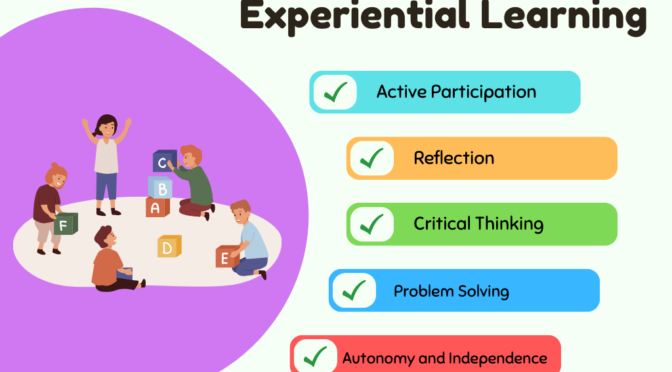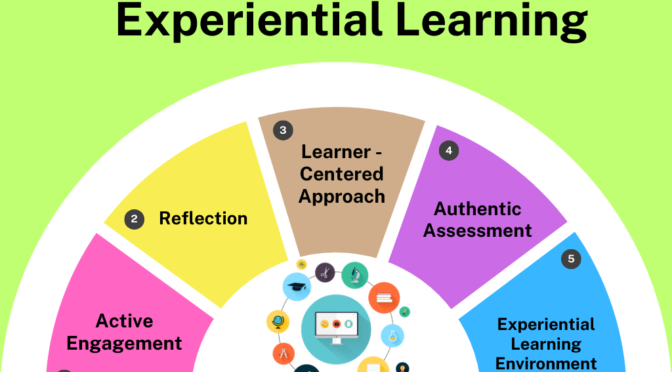In experiential learning, students play a central and active role in their own learning process. Unlike traditional passive learning approaches where students primarily receive information from instructors, in experiential learning, students engage in hands-on experiences that foster critical thinking, problem-solving skills, and a deeper understanding of the subject matter. The role of students in experiential learning is very important.
Here’s a breakdown of the role of students in experiential learning:
Active Participation: Students actively engage in learning activities, whether they involve experiments, simulations, fieldwork, projects, or other experiential exercises. They take part in the process rather than being passive recipients of information.
Reflection: After participating in an experience, students reflect on what they have learned, what went well, what could be improved, and how the experience connects to their existing knowledge and understanding. Reflection helps deepen learning and promotes metacognition.
Also Visit: Prep with Harshita
Read more on the next page.


